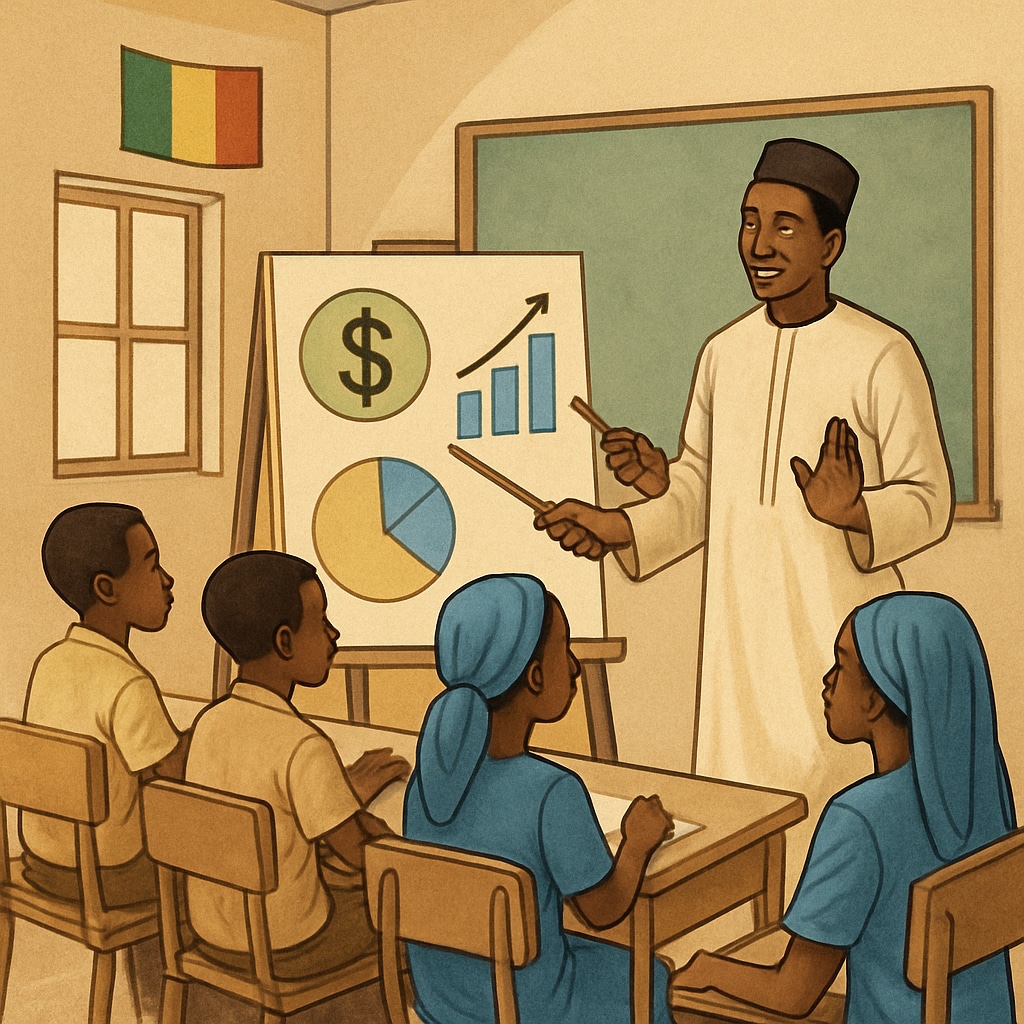Developing nations like Mali face unique challenges when it comes to nurturing financial professionals capable of navigating the modern global economy. “Financial careers in Mali and overseas development” are deeply influenced by the foundational education systems, especially K12 education. However, existing gaps in financial literacy and practical application in early education often leave students underprepared for university and, eventually, the workforce. This article examines the critical role of K12 education in shaping financial careers, highlights current issues, and suggests reforms to better prepare students for professional success.
How K12 Education Shapes Financial Careers
In many developing countries, the K12 education system often lacks dedicated financial literacy programs. Subjects like mathematics and economics may touch upon basic principles, but they do not provide the practical tools or real-world applications needed for a future in finance. For example, in Mali, students frequently graduate without exposure to concepts like budgeting, investment strategies, or financial ethics. As a result, university-level financial education becomes a steep learning curve, leaving students at a disadvantage compared to their peers in developed countries.
Financial literacy at the K12 level is crucial for several reasons:
- Early Skill Building: Introducing concepts like budgeting and saving can help students develop habits that are essential for personal and professional success.
- Career Awareness: Exposure to financial careers can inspire students to pursue professions in banking, investment, or financial analysis.
- Economic Empowerment: Educated individuals contribute to national economic growth by making informed financial decisions.

Challenges Facing Financial Career Aspirants in Developing Nations
Despite the growing demand for skilled financial professionals globally, students in countries like Mali face significant barriers. These challenges include:
- Limited Resources: Many schools lack access to modern teaching tools, textbooks, or technology focused on financial education.
- Insufficient Teacher Training: Educators themselves often lack the expertise needed to deliver financial literacy programs effectively.
- Socioeconomic Factors: Poverty and limited access to quality education hinder many students from pursuing advanced studies in finance.
For example, a report by Wikipedia on Education in Mali highlights that rural schools often struggle to meet basic educational standards, let alone specialized training in fields like finance. As a result, students often enter university with minimal preparation, making it difficult to compete in the job market.

Solutions: Reforming K12 Education for Financial Literacy
To address these challenges, developing nations must prioritize reforms in their K12 education systems. Here are some actionable solutions:
- Integrate Financial Literacy into Curricula: Introduce age-appropriate financial topics, such as saving, investing, and the basics of economic systems.
- Teacher Training Programs: Provide educators with specialized training to teach financial literacy effectively.
- Leverage Technology: Use digital tools and online platforms to make financial education accessible even in remote areas.
- Public-Private Partnerships: Collaborate with banks, NGOs, and corporations to fund financial literacy programs and provide real-world insights.
For example, organizations like Britannica on Financial Literacy emphasize the importance of early education in shaping lifelong financial habits. Such initiatives could be adapted to suit the unique needs of countries like Mali, ensuring students are better prepared for both university and employment.
Conclusion: Bridging the Gap Between Classroom and Career
In conclusion, the journey from classroom to career in the financial sector is particularly challenging for students in developing countries like Mali. However, by reforming K12 education to include financial literacy and practical applications, governments and educators can empower students to pursue rewarding careers in finance. These efforts not only benefit individuals but also contribute to national economic development, creating a generation of financially savvy citizens who can drive progress and innovation.
“Financial careers in Mali and overseas development” hinge on the ability to overcome educational barriers and equip students with the skills needed to succeed in a globalized economy. By investing in foundational education, developing nations can unlock the full potential of their future financial leaders.


